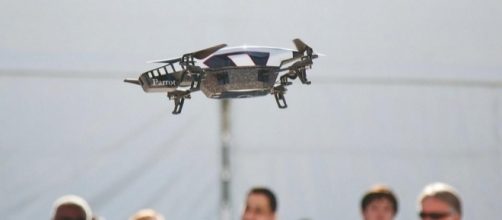According to a Report by Quartz Media, a proposed bill intended to regulate drone use in Connecticut includes a very interesting exemption for law enforcement. While the bill bans civilians from weaponizing the machines in any way, the exemption would allow Police officers to outfit drones with both lethal and non-lethal weapons. While details are still in the works, reports indicate that tasers and canisters of tear-gas are two examples of possible weaponry that could be used with the drones. These same reports also point out that although Connecticut would become the first state to legalize the use of deadly force via drones, North Dakota does actually already allow officers to use drones equipped with stun guns and other weapons that are deemed non-lethal.
Several civilian groups oppose the bill
According to the Associated Press, Connecticut state senator John Kissel strongly emphasized that this exemption is intended purely for "limited circumstances," and went on to illustrate a typical scene in which citizens could expect to see officers employ the use of an armed drone: "We can certainly envision some incident on some campus or someplace where someone is a rogue shooter or someone was kidnapped and you try to blow out a tire."The bill still has yet to be voted on in both chambers, though it has already successfully been approved by one Connecticut legislative committee, Quartz Media reports. As with most legislature, however, there are many dissenting parties, angry that Connecticut would even consider such an idea.
American Civil Liberties (Connecticut branch) executive director David McGuire is a spokesman for one such party. He argues that "The police don't need this option to keep us safe," and goes on to state that his organization is "troubled by this on so many levels."
Dissenters argue 'drone training' isn't enough
Proponents of the bill are adamant that any officers equipped to use the drones would be properly trained, but McGuire suggests that there really are very few real world experiences to date that support the idea that someone could even be "properly trained." He contends that "We really have to go to international war conflict to find examples," adding that it's almost "impossible" to ensure the proper precautions are taken when handling such powerful machines.
He also points to the idea that the separation factor between whoever may be operating the drone and its intended target could quite possibly increase the likelihood of using unnecessary force- much like in a video game.
If passed, the bill will definitely be a revolutionary step in policing American streets.

